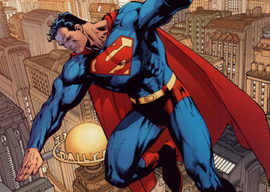
May 09, 2011

I have just visited the High Vosges in eastern France, where the American Army fought some of its hardest battles against the Nazis. A veteran of the 36th Infantry Division, which advanced from the Riviera in the summer of 1944 to the Rhine in 1945, showed me over the ground. He lost many friends and could not control his emotions when he saw one of their graves in the American cemetery at Epinal: “He was only twenty-one,” he said. The 36th captured Hermann Göring, the Luftwaffe chief. They did not beat him to death. They turned him over for trial, and he escaped hanging only by taking poison just before his execution. Other Nazis were hanged and others went to prison. This was to be the new order enshrined in the Universal Declaration of Human Rights. Genocide, preemptive war, and torture were outlawed. The young men who fought and lost lives or limbs in the Vosges represented the best of an ideal, what used to be called the American way. It was justice, not vengeance. It was the courtroom, not the death squad. The law may be inconvenient at times, but it protects us when the powerful seek to take our liberty, our property, or our lives.
The Scottish author Allan Massie wrote on May 4 in The Scotsman:
The Nuremberg trials of the leading Nazis were deeply flawed, but they were nevertheless better than putting the captured Nazi leaders up against a wall and shooting them. One consequence of the trials is that there never have been, and almost certainly never will be, Nazi martyrs. Judicial process is better than summary execution.
The Department of Justice has been preparing a case against Osama bin Laden for murder and other crimes since 1998, which it is now asking the Manhattan Federal District court to dismiss because of bin Laden’s demise. Former US attorney Mary Jo White told The New York Times, “There was no question from our perspective that at the time of the June 1998 indictment, the objective was to bring Bin Laden back for trial.” Daniel J. Coleman, the retired FBI agent who had been tracking Osama since 1996, said, “There was a lack of political will to do anything.”
In Western movies that are as much a part of the American myth as Superman, the hero is never the leader of the lynch mob. He is the sheriff, who risks his life to protect the murderer until the judge arrives. Where is the sheriff now?
The Action Comics authors ended their last issue with Superman saying he was going to renounce his citizenship. He hasn”t done it yet. There may be time to talk him out of it. It will take a commitment to truth and justice. Are we capable of turning our backs forever on government assassination, torture, and arbitrary imprisonment?
I cannot shed a tear for Osama bin Laden, but there are times when weeping for my country is not a bad idea.